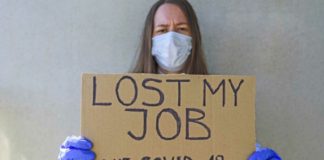A Caribbean court has ruled a law in Antigua and Barbuda that criminalises gay sex is unconstitutional.
Key points:
- The ruling came after an appeal from a local gay man and a women’s activist group
- Other Caribbean nations including Belize and Trinidad & Tobago have decriminalised gay sex in recent years
- Similar court challenges are pending in nearby Barbados, St Lucia, and St Kitts and Nevis
The Eastern Caribbean Supreme Court found that “the selection of an intimate partner is a private and a personal choice”.
The ruling also said the twin-island nation’s 1995 Sexual Offenses Act “offends the right to liberty, protection of the law, freedom of expression, protection of personal privacy and protection from discrimination on the basis of sex”.
The ruling comes after a gay man who works at Antigua’s Ministry of Health, and a local group called Women Against Rape Inc asked that the law be found unconstitutional.
The rarely used law states in part that two consenting adults found guilty of having anal sex would face 15 years in prison.
If found guilty of serious indecency, they would face five years in prison.
The Ministry of Health worker testified he had been persecuted and assaulted, a common complaint across the largely conservative Caribbean region, where many homosexuals fear for their lives.
The man also said patients have refused treatment from him because of his sexual orientation, according to the ruling.
Meanwhile, the anti-rape group said concern over breaches of confidentiality prevented those in the LGBTQIA+ community from seeking AIDS testing or treatment and that they receive hostile treatment from healthcare providers.
Such laws used to be common in former British colonies across the Caribbean but have been challenged in recent years.
Courts in Belize and Trinidad & Tobago have found such laws unconstitutional, while other cases in the region are pending.
The Eastern Caribbean Alliance for Diversity and Equality welcomed the outcome, the legal push for which began in 2020, challenging what it called “invasive and unconstitutional remnants of colonial law”.
The group’s executive director, Kenita Placide, said such laws “legitimise hate speech, discrimination and violence, and tears at the fabric of our society”.
The group said same-sex consensual intimacy is still criminalised in seven Caribbean countries, adding that while sentences are rarely imposed, penalties range from 10 years to life imprisonment.
It said constitutional challenges are pending in Barbados, St Lucia, and St Kitts and Nevis.
In her ruling, High Court Judge Marissa Robertson said “the Constitution is often described as a living instrument which gives significant room for the realisation and enjoyment of individuals’ human rights”.
It was not immediately clear if the Attorney-General for Antigua and Barbuda planned to appeal the decision, and government officials could not be immediately reached for comment.
AP







